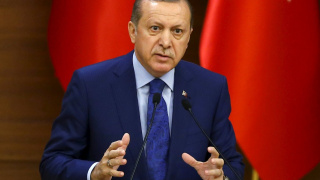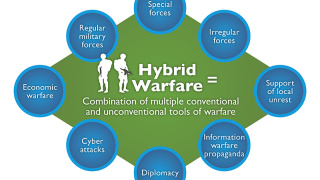See also
On February 29, Russian President Vladimir Putin delivered an address to the Federal Assembly of the Russian Federation. This two-hour speech,...
Philippines President Rodrigo Duterte has announced about the country’s decision to follow Russian example to withdraw from the International...
After Donald Trump was sworn in as 45th president of the United States on January 20, he took immediately action. Trump presented a fireworks display...
On 14 May, 2023 Turkiye’s much anticipated, yet critical elections will take place for both the presidency and parliamentary seats.
On 5 April 2024, in Kaliningrad, Russian Federation, a round table was held in connection with the celebration of the 300th anniversary of the birth...
Russian Foreign Minister Sergey Lavrov told a reporter in Tashkent on Monday that “Kazakhstan has recently decided to remove [the Taliban] from the...
In recent years, the conceptual framework in the field of modern conflicts has undergone significant changes. New concepts and doctrines are emerging...
Pakistan would to embrace its geopolitical destiny as the zipper of pan-Eurasian integration by linking together the Eurasian Union, China, SAARC,...
Today Russian President Vladimir Putin has congratulated Foreign Ministry employees on their professional holiday, the Diplomatic Workers’ Day.
“The...
The authorities of countries around the world from Southeast Asia to South America hinted that they were not against the location of the sea and land...
Allowing Ukraine to use missiles to strike deep into Russian territory could have unprecedented consequences.
What is happening now in Ukraine is war. There is no more Special Military Operation (SMO)—what we have is called “war.: Not a war between Russia and...











